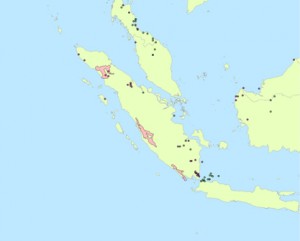Well, national parks may not be all that great at conserving crop wild relatives, but a fascinating article in the latest newsletter of the SADC Plant Genetic Resources Network, which is unfortunately not online, alerts me to the fact that a Tanzanian national park was set up a few years back to protect edible orchids.
Last year, WCS released a report documenting how the region’s orchids were being exploited by local people, who exported the plants into neighboring Zambia, where they are eaten as a delicacy. The report says that up to 85 orchid species are being harvested for use in chikanda or kinaka, a delicacy in which the root or tuber of terrestrial orchids is the key ingredient in a type of meatless sausage.
Chikanda is an unsustainable industry in Zambia itself. Edible orchids are also big in Malawi. And they’re sought after in other parts of the world as well, notably Turkey, where their use in making a delicious traditional desert is endangering them. I couldn’t find any reference to protected areas in Turkey being set up specially for them, but the commercial export of the orchids has been banned since 2003.
